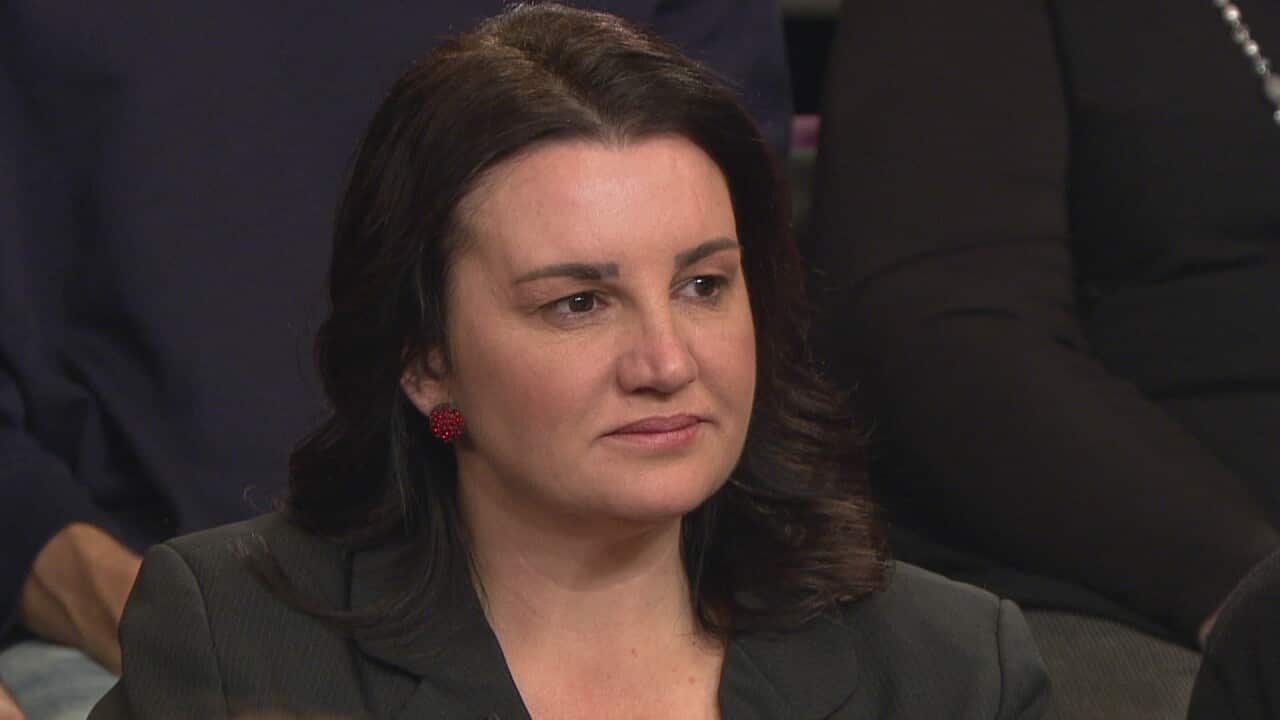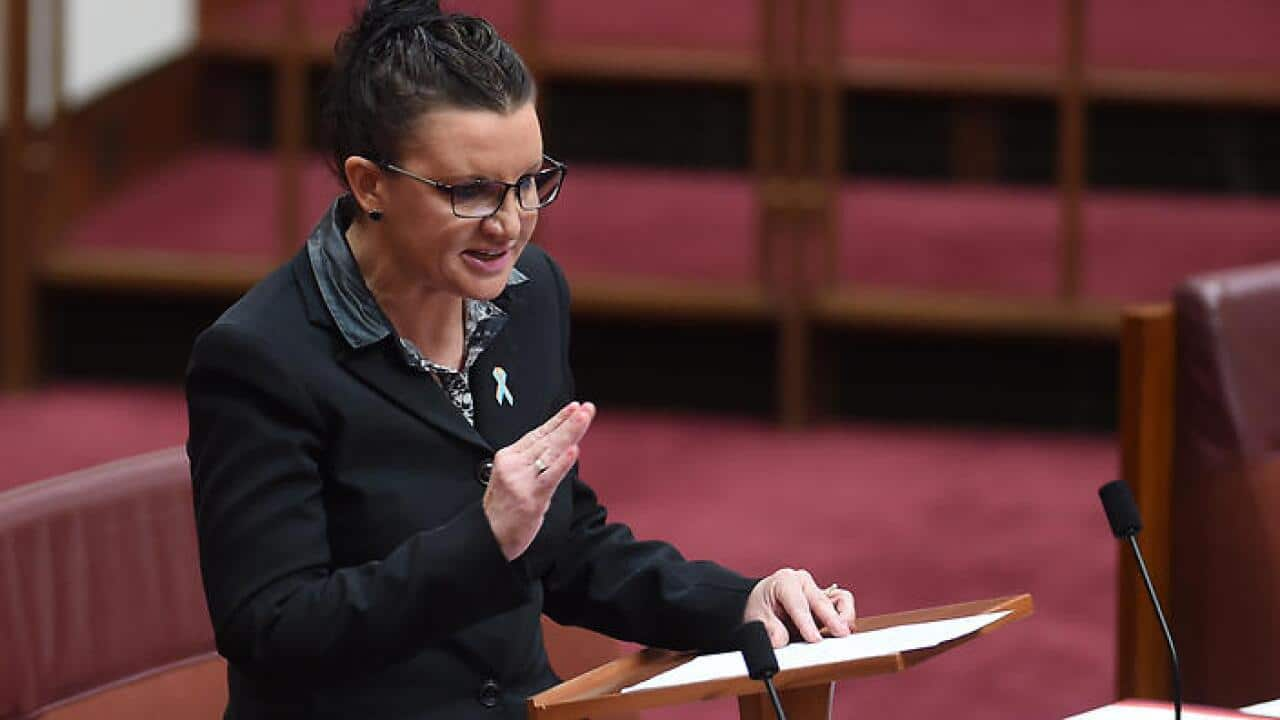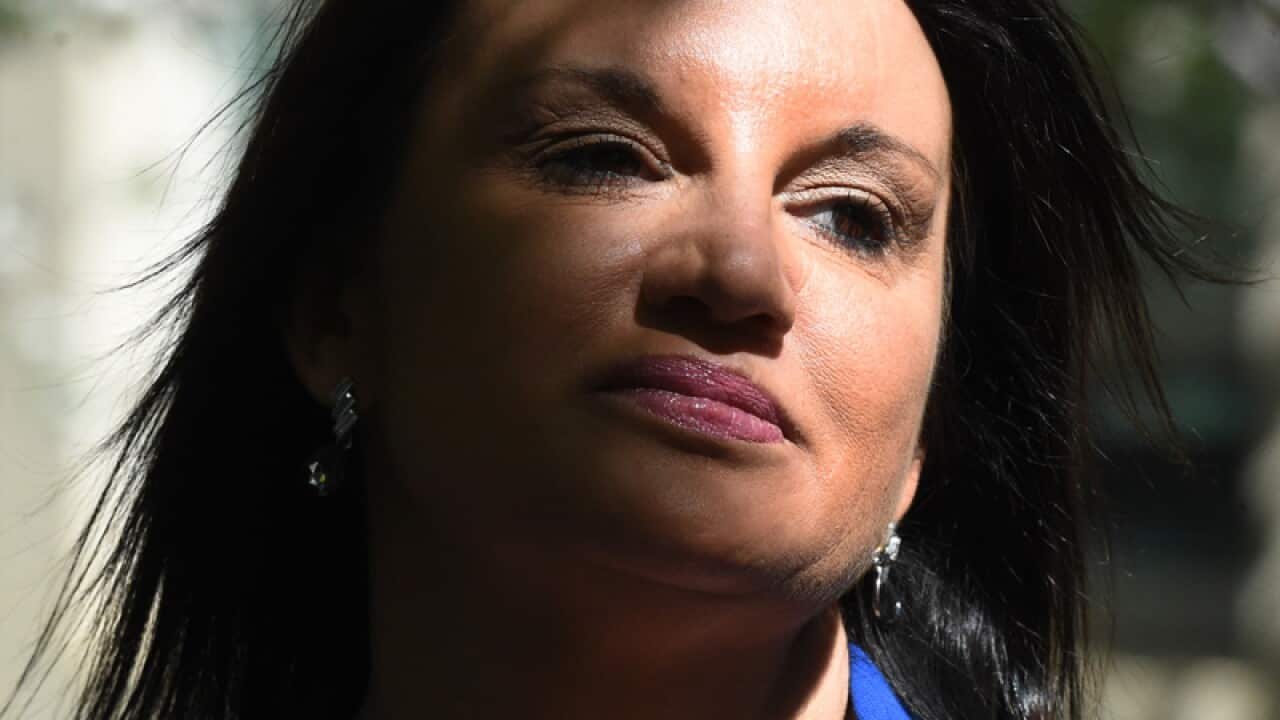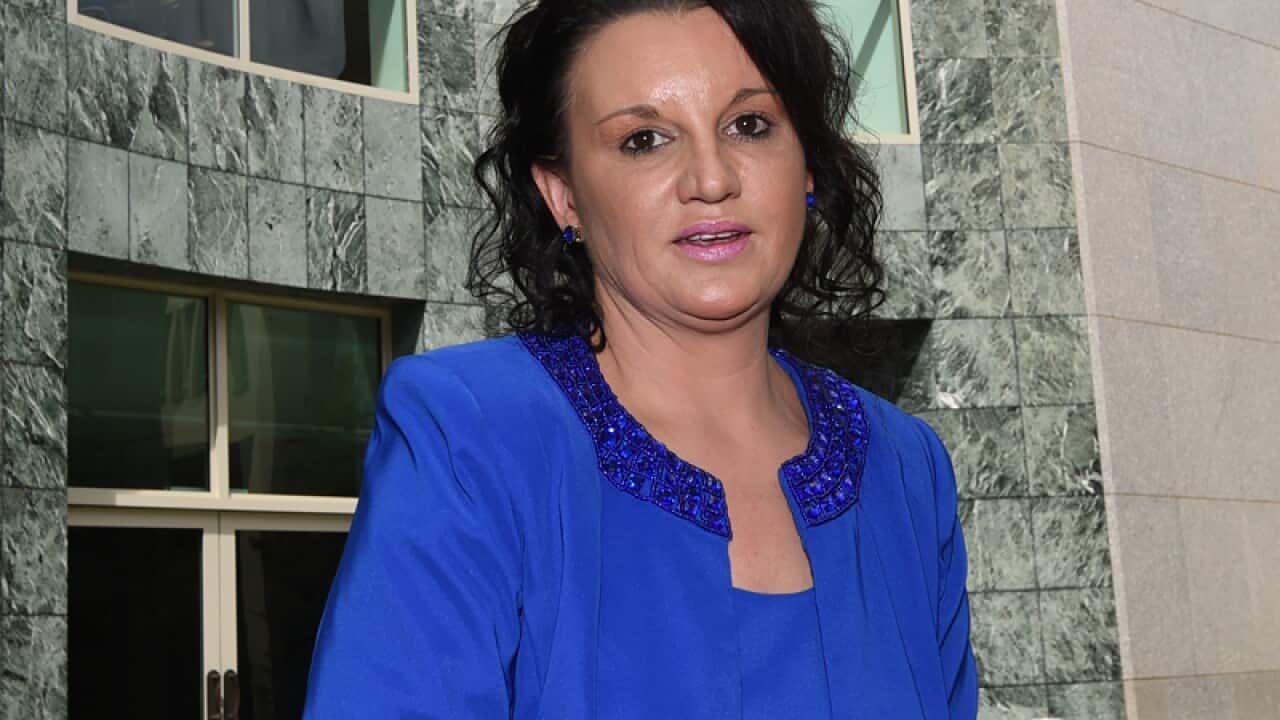Fierce, outspoken and controversial. There are many robust words to describe Jacqui Lambie.
But call her what you like, the Tasmanian senator has now cemented her role in the Parliament after almost four years in the Upper House.
It comes after many doubts from detractors, and herself.
"It has been a really tough learning curve for somebody who never had any interest in politics, and for somebody who didn't really have a great deal of respect for politicians," she tells NITV in an exclusive sit-down interview.
And Jacqui says her respect for politicians has not changed.
Her straight-shooting, fiery style in the Parliament regularly divides Australians and politicians, but she makes no apologies.
"[I'm here] to be a voice for those who are a lot less fortunate," she says.
"I'm one of those people that you can put all the odds you like against me and you wipe me out, [but] you can guarantee I'll be right back up on my feet and right beside you."
It's clear her tough exterior comes from a difficult past, growing up in housing commission with her single mother and younger brother.
Despite this, Jacqui says she's one of the lucky ones.
"My brother and I went through the public school system, we had friends that had money and we had friends that didn't have money, and that's the way it worked. I'm really grateful to be able to have that life experience and be able to use both sides of life in things that I'm fighting for now," she says.
And as you'd expect Jacqui's rise to power didn't come easy.
Single mother on welfare
Jacqui moved many when she made an emotional plea during a late-night sitting in the Senate earlier this year, urging the government to reconsider its plans to cut welfare.
She opened up about her own struggles as a single mother, living on a pension.
"There was a time when my fridge broke and three weeks we lived out of an esky, and I put the esky under the house so the ice would last longer," she wept in the Senate.
She begged fellow senators to understand what life is like at the bottom.
You have no idea how bloody tough it is, every little cent counts to those people and what you are doing is shameful.
The mother-of-two says most politicians have no idea about the struggles faced by many Australians.
"I laugh at these politicians who say they've spent a couple of weeks inside public housing. I'm thinking 'good on ya,' so what about when your car broke down, your fridge broke down, what happened when an expected circumstance happened when you had to pay for medical bills?" she asks.
"Two weeks doesn't even give you close to realising what its like to live on that side of the world. They've got no idea. Go in there for 12 months and on the little bit of money that they get, try and feed your kids and try and give them a good life because it is very, very difficult."
Growing up in the small port city of Burnie, on the north-west coast of Tasmania, Jacqui remembers a happy childhood. But it wasn't long until her family felt the pressures of everyday life.
"When Mum separated from Dad, Mum had a bad back and could no longer work in factories. She had to go back to school, so she could transfer her skills over to computer skills and get an office job. So for three years, mum was on a single mother's pension and we moved into public housing," she recalls.
This is where Jacqui stayed until she joined the army when she was just nineteen.
"I drove trucks for the first half of my military career, which was great because I was one of the first women to get my Mac truck licence," she says. But it was her time within the military police that Jacqui says was her toughest.
But it was her time within the military police that Jacqui says was her toughest.

Source: Supplied
"Not only were those men very difficult to deal with, they weren't like the truckies who were much more easy-going, they were very competitive."
She says those taxing years help with her role as a senator today.
"Even though it brought me unstuck over some time, the last couple of years in the army I had worked the men out by then and how to deal with them. And that really helps me in politics today, I'll be honest with you."
But her biggest fight would come when she took on the Department of Veterans' Affairs demanding compensation after suffering a back injury.
"I basically had ten years of hell under Veteran Affairs and going through that and my family seeing what that did to me, it destroyed me for ten years. After a year fighting, I remember sitting in a corner just in tears and I promised myself [if] it was the last thing I ever did, if God just gave me that second chance at life, I would come back and rip Veterans Affairs apart," she says.
But it wasn't the only fight Jacqui had to endure. While her eldest son was serving in the armed forces, her youngest, Dylan, was having a battle with the drug ice.
"The most difficult thing was, I was powerless. And I think that was the most difficult thing of going through it all. Once they get onto that drug ice, you can't reason with them, you can't negotiate with them, they're the most unpleasant people to be around. Something's gotta give and I think that was one of the hardest decisions that I've ever had to make in my life was actually telling one of my sons he had to leave," she says.
Today Dylan is on the mend, and despite the setbacks, Jacqui is grateful.
She hopes to use her life experience to fight for everyday Aussies.
"I can say to those voters out there, 'yeah I get it, I understand it'. And I understand when they put certain legislation up here and you think that's not gonna help that end of it. It must be very difficult for the Liberal Party, who come from a different world of usually the richer class, to understand what the hell is going on down the bottom here because they are so disconnected, they just don't get it and you know what I don't get some of either," she explains.
Indigenous seats in Parliament
But another issue important to Jacqui is to see more Indigenous Australians in Parliament.
Jacqui makes up part of the five Indigenous senators and members serving in Parliament today, the most representation we've ever seen, but she hopes to see more.
And she says even though the group is influential, they still belong to the major parties.
"They don't get to go out on the loose like I do, they still have to remain within boundaries. I imagine they find that quite difficult at times. I believe that if you want a piece of the pie, you had better be on the inside of it. Because if you are not, you are not going to get anywhere," she says.
Jacqui says more needs to be done to ensure First Australians have a voice, hoping dedicated seats in Parliament for Aboriginal and Torres Strait Islander peoples becomes policy.
"To me, that is better than any apology that anyone can ever give. You can apologise to somebody and that can give them the fuzzy wuzzys, but it is not going to change the circumstances. If these people are on the inside, and they're helping make decisions for their own people, and that's what they're concentrating on, then I think you'll get much better results," she says.
But she doesn't think the elected voice to Parliament proposed by the Referendum Council will change anything.
"We are an Indigenous group, you are sitting around a round table and the ministers sit there and nod at you, that's what they do, they'll not at you, but you won't get the change that you want."
Journey to find own heritage
But Jacqui's own journey to finding her Indigenous heritage has been plagued with doubt.
Three years ago, she surprised many during her maiden speech when she claimed she was a descendant of Aboriginal leader, Mannalargenna.
"I acknowledge and pay my respects to Australia's Aboriginal Traditional Owners. I share their blood, culture and history through my mother's, Sue Lambie's, family. We trace our history over six generations to [the] celebrated Aboriginal chieftain of the Tasmania east coast, Mannalargenna," she said.
Tasmanian Elder and direct descendent of Mannalargenna, Clyde Mansell, said he was shocked by Jacqui's claims.
"That's my family. And she's not part of it," he told the ABC.
Mr Mansell, who is also chair of the Aboriginal Land Council of Tasmania, branded Ms Lambie's claims as "absolutely outrageous and scandalous".
"They're totally unfounded," he said.
He asked Ms Lambie to back up her claims and provide evidence of her Aboriginality.
Shortly after, Senator Lambie provided documents to the ABC. A family tree indicated a lineage from one of Mannalargenna's granddaughters, Margaret.
But the links back the to the Aboriginal leader are complicated after Margaret's husband Thomas was found to have no trace in Tasmanian archival records.
Jacqui admits not much is known about her family's links to Aboriginal ancestors but says her family is continuing their research.
"I don't really know much about that and I do believe the family is now having a good look, they've got all of the background on my grandmother, and haven't gone over to my grandfathers or what, I'm not really sure but it will be interesting to see comes out of that," she says.
"I know that I come from the Mannalargenna side but what side did he come from, and where did he come from and how far back does that go, that always fascinates me so I'll be looking forward to what that brings up."
Making her mark in politics
After bursting onto the political scene in 2013 with Clive Palmer's Palmer United Party, then re-inventing herself as a one-woman show a year later, there's no doubt Jacqui Lambie has made her mark.
While she's confronted some major battles throughout her life, Jacqui says Parliament has been one of her biggest teachers.
"Up here is like on another planet, there is no trust, there is no loyalty and there sure as hell is no honour and these people will stab you in the back as quick as look at you," she says.
She has some tough love for all Australians.
"You can either play the victim or you can stand up and move ahead with your life, you know what, I'm no different to that person with that colour skin or with that religion - it what we make of life that makes us who we are."






